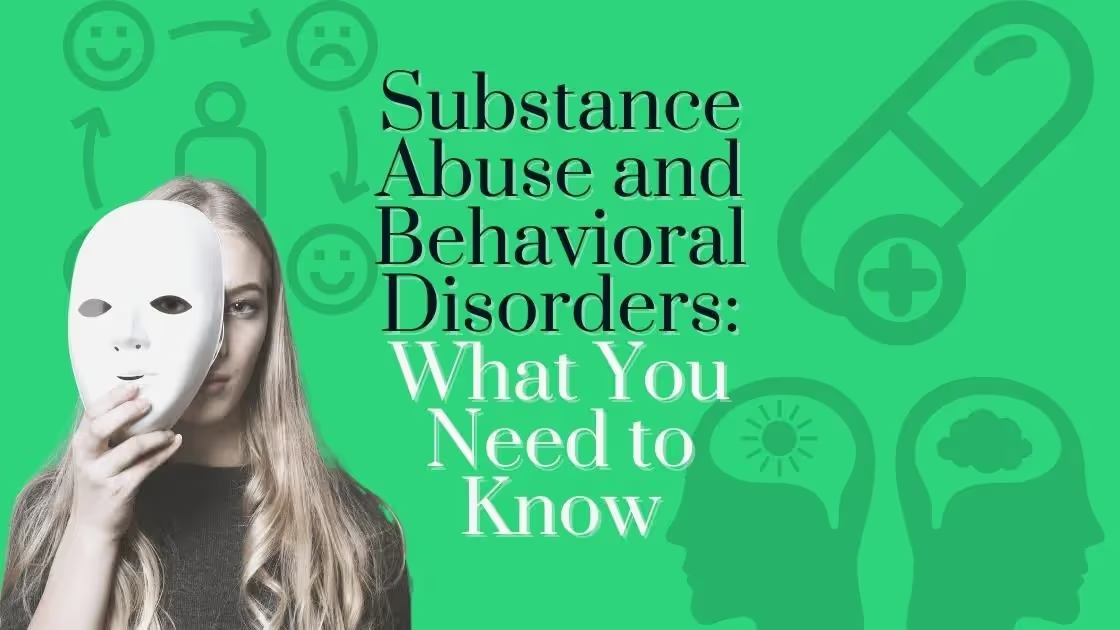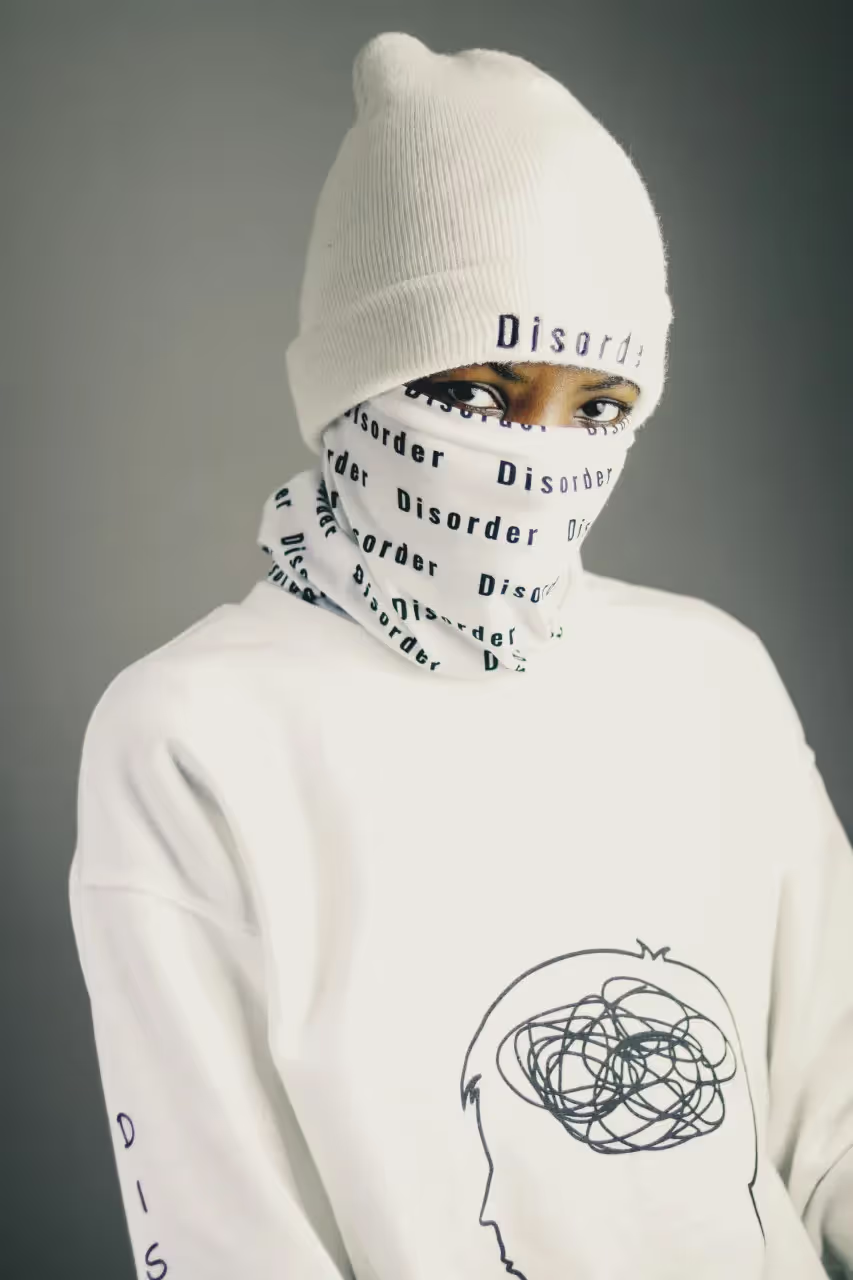Behavioral disorders can be very difficult to deal with. If you are the loved one of someone who has a behavioral disorder, then you know how hard it can be...

Behavioral disorders can be very difficult to deal with.
If you are the loved one of someone who has a behavioral disorder, then you know how hard it can be to get them the help they need.
Substance abuse and behavioral disorders often go hand in hand.
This can make treatment more complicated, but it is not impossible.
In this blog post, we will discuss the different behavioral disorders, how to get help for someone who has one, and the relationship between substance abuse and behavioral disorders.
A behavioral disorder is a mental illness that affects a person's ability to behave normally.
A person with a behavioral disorder may have trouble controlling their impulses or emotions.
They may also have difficulty interacting with other people.
Types of Behavioral Disorders
There are many behavioral disorders.
Some of the more common ones include:
Anxiety disorders
These disorders cause a person to feel extremely anxious or scared.
They may have trouble sleeping or eating, and they may experience panic attacks.
Mood disorders
These disorders cause a person to have extreme mood swings.
They may feel thrilled and happy one minute and very sad the next.
Personality disorders
These disorders affect a person's personality.
People with personality disorders often have trouble relating to other people and managing their emotions.
If you are worried that someone you love may have a behavioral disorder, there are some signs to look out for.
Some common symptoms of behavioral disorders include:
· Difficulty controlling impulses or emotions
· Aggressive behavior
· Destructive behavior
· Self-harm behaviors
· Drug and alcohol abuse
If you are seeing any of these symptoms in someone you love, it is important to get them help.
Behavioral disorders can be very serious and left untreated, they can lead to lifelong problems.
There are many types of behavioral disorders, and each one can affect people in different ways.
Some common behavioral disorders include:
· ADHD- Attention Deficit Hyperactivity Disorder
· ODD- Oppositional Defiant Disorder
· Conduct Disorder
· Bipolar Disorder
· Borderline Personality Disorder
We describe each of these disorders below.
ADHD- Attention Deficit Hyperactivity Disorder
ADHD is a disorder that affects a person's ability to focus and concentrate.
It is also characterized by hyperactivity and impulsiveness. ADHD is one of the most common behavioral disorders, and it affects millions of people in the United States.
ODD- Oppositional Defiant Disorder
ODD is a disorder that causes children to be constantly defiant and hostile towards authority figures.
They may have problems following rules and regulations, and they often have trouble getting along with other children.
ODD is one of the most common behavioral disorders in children.
Conduct Disorder
Conduct disorder is a disorder that affects children and teenagers.
It causes them to engage in destructive or antisocial behavior.
Children with conduct disorder may have problems with aggression, violence, and theft.
Bipolar Disorder
Bipolar disorder is a mental illness that causes people to experience extreme mood swings.
They may go from feeling very high and happy to feeling very depressed.
Bipolar disorder can be a serious mental illness, and it often requires treatment.
Borderline Personality Disorder
Borderline personality disorder is a mental illness that causes people to have unstable moods and relationships.
People with borderline personality disorder often have intense emotional reactions, and they may engage in self-destructive behaviors.
This is a very serious mental illness, and it requires treatment.

If you are worried that someone you love may have a behavioral disorder, the best thing to do is get them help.
There are many types of treatment available for people with behavioral disorders.
Some common treatments include:
Cognitive-Behavioral Therapy
This type of therapy helps people learn how to control their impulses and emotions.
It can be very effective for treating ADHD, ODD, and conduct disorder.
Medication
There are many types of medication that can treat behavioral disorders.
Some common medications include antidepressants, anti-anxiety medication, and mood stabilizers.
Psychotherapy
This type of therapy helps people understand their emotions and behaviors.
It can be helpful for people with bipolar disorder and borderline personality disorder.
If you are struggling with both substance abuse and a behavioral disorder, there are some things that you can do to improve your chances of recovery. Here are some tips:
Get help from a professional
This is the best way to get started on the road to recovery.
A professional can help you understand your disorder and how to treat it.
Join a support group
There are lots of support groups for people with substance abuse and behavioral disorders.
Joining a support group can be helpful to network and get support from others who are going through the same thing.
Seek treatment
Seek treatment if you feel you or a loved one is suffering from any of these ailments.
Treatment can help you recover from your disorder and live a healthy life with professional help.
If you or someone you know is struggling with substance abuse and/or a behavioral disorder, get help today.
With all the different treatments available, and with the right help, you can recover from your disorder and lead a healthy life.
https://europepmc.org/article/med/8041352https://www.mdpi.com/71726
http://mindpeacecincinnati.com/wp-content/uploads/Bookshelf_NBK32775.pdf
https://journals.sagepub.com/doi/abs/10.1177/019874299602100303
https://books.google.com/books?hl=en&lr=&id=9sp3uwMQh1UC&oi=fnd&pg=PP2&dq=prevention+of+emotional+and+behavioral+disorders&ots=zskHl1y4Kx&sig=1JGpjk6sE4O2BGDAniW2Iy41zjE
Some resources for family members of addicts include therapy, counseling, 12-step programs, and other support groups. It is important to seek out these resources to get the tools you need to deal with your loved one's addiction. You can also find help for yourself through these resources.
Treatment for alcohol abuse often includes counseling, support groups, and medication. With the right help, your spouse can recover from alcoholism and go on to lead a healthy and happy life.
Yes, alcohol abuse is a treatable condition. However, it often requires professional treatment to overcome. With the right support, though, anyone can overcome alcohol abuse and regain control of their life. It's important to reach out for help if you or someone you know is struggling. With the right treatment, anyone can overcome alcohol abuse and regain control of their life.
The best way to help an addict without enabling them is by setting boundaries and getting help for yourself. It is important to remember that you cannot control the addict's behavior, but you can offer support and understanding. With time and patience, you can help your loved one recover from addiction.
Alcohol abuse is a pattern of drinking that leads to problems in one's personal, professional, or social life.
If you think you might be struggling with alcohol abuse, the first step is to talk to your doctor. Your doctor can help you assess your drinking habits and recommend treatment options. There are also many different types of treatment programs available for alcohol abuse, so you can find one that fits your needs and circumstances. Additionally, support groups can be a valuable resource for anyone struggling with alcohol abuse. These groups provide a safe space to share your experiences and connect with others who are facing similar challenges.